The Shop
How one Cypriot family preserved the London Jewish deli. Words by Laura Goodman; photos by Michaël Protin
This article is a part of Vittles British Jewish Food Week. To read the rest of the essays and guides in the project, please subscribe below:
The Shop, by Laura Goodman
How one Cypriot family preserved the London Jewish deli
The original B&K, known as The Shop to members of the Georgiou family who are behind it, has existed on a busy little bit of Edgware’s Whitchurch Lane for the past forty-four years. If you’ve been going there forever – like me, my family and my friends – you’ve probably taken it for granted. I still think of it as my grandma’s place, and she’s been dead for twenty years. Today, Edgware feels much the same as it did when my grandma and I traipsed it together, when I would pester her for a packet of Juicy Fruit, only now B&K’s HOT SALT BEEF sign is sandwiched between a salon boasting a disastrously cheap Shellac mani on one side and a Papa John’s on the other. In 1979, when B&K opened, the Papa John’s next door was not a Papa John’s but a different pizza shop, run by a man called Travis Reed who wore a trilby. Somehow, this has been one of the biggest changes in the vicinity over the past fifty years.
If you ask the owners of B&K what’s changed about The Shop, they will unanimously and proudly reply ‘Nothing.’ (though I note the white tablecloths were removed during Covid). The space is still boxy and wood-panelled, with a small counter, and its lack of decoration has been a feature since the beginning. Behind the plain counter sits some of London’s best Jewish deli food: three types of pickle, salads, fish balls (gefilte fish in this deep-fried format is UK-specific), latkes, homemade apple strudel and lokshen pudding (think – if you must – bread-and-butter pudding but with vermicelli noodles), plus roast turkey and salt beef, both ready to slice. I often hear people referring to the man behind the counter - no matter who it is - as ‘one of the brothers’, which is not always accurate but gives the shop a sort of agelessness, as though it’s still founder Bambos Georgiou doing the business, not his sons and grandsons. It’s also small: when you eat in, the person behind the counter is always within earshot. Bambos’s son, Michael Georgiou, can tell you an astonishing story about two Auschwitz survivors spotting each other from opposite ends of the counter and screaming – screaming – with recognition after fifty years. He watched it all from his station, by the beef.
Each time you find yourself inside B&K, hovering with your free fish ball and waiting for a sandwich, it feels like a homecoming. It will feel this way to you even if you’ve never been there before. When you walk in, the man behind the counter (almost always a man; almost always a Georgiou man) will ask ‘How’s your luck?’ or ‘How the devil are you?’ (emphasis on the devil) or ‘How’s the family?’, and you will feel known. You will feel your jaw unclench and your shoulders soften, even if you’re new. And if you are new, what should you do? It depends who you ask. My dad: salt beef on rye, latke, sweet-and-sour cucumber. My brother David: turkey and coleslaw on white, latke, new green cucumber, cup of tea. My daughter Zipporah: lokshen and kneidlach soup (chicken soup with matzo balls and noodles), a latke, and everyone else’s latkes too. I’m the one bustling around, trying to get people to split things with me so I can have all of the above. Extra fish balls for everyone.
I have now spoken to many more Georgious than I was aware existed, so I can give you a fuller picture of B&K’s history. From the top: Charalambos Georgiou (known as Bambos to friends and customers) arrived in the UK in 1957, off the back of some drama that involved Makarios III, the archbishop of Cyprus, granting him permission to marry (and save the life of) a Greek woman from the resistance. The details are patchy; Bambos didn’t talk about it much (his daughter Penny only found out when she was told by her mother not to offer her father a slice of fanouropita, or ‘the cake of lost things’, because he’d been married more than once) – but, basically, he needed to get out of Cyprus. To get to the UK he required an ‘invitation’ and, though he was a carpenter, his only link there was an uncle who’d worked at The Nosh Bar on Great Windmill Street.
There were three tiny but mighty Jewish salt beef bars on Great Windmill Street at the time – The Nosh Bar, Phil Rabin’s and Carrolls – which were popular among celebrities, showgirls and boxers, and over the next twenty years Bambos would not only rise through the ranks but float between the three. Though perhaps the word ‘float’ makes it sound more serene than it was: his family say he followed his moods. That when he had an argument with one business, the other two were waiting to scoop him up. That he took no shit and had a very specific magnetism. Wherever Bambos went, salt beef boomed.
In 1966, Selfridges asked for his help with the Brass Rail, which is now the oldest restaurant in the food hall, and one of the few places left in central London to eat salt beef. You can see an old photo of Bambos with his Brass Rail team on display in the Edgware shop. I’d always heard he ‘opened’ the Brass Rail, not that he’d ‘run’ it, and had foolishly assumed he’d worked in a sort of consultant capacity. Actually, his son says Selfridges wanted him for keeps, but that ‘Like other people, they thought they knew best and started cutting corners, and Dad wasn’t interested. He’d come to teach them how to do things right, not to rip people off.’ His family say he was one of the highest-paid people in the West End.
The K of B&K represents Bambos’s wife and the mother of his five children, Katerina, who was killed in a road-traffic accident while the children were young. Penny, who is one of the older siblings, confessed to her dad at the time of her mother’s death that she worried about two of her young brothers, Michael and Jonny (the two strapping sixty-somethings who command the Edgware counter today). So, in 1979, twenty-two years into his salt beef career and thirteen years after the Brass Rail opened, Bambos bought The Shop as an insurance policy for his children. He bought it from Jerry Komisar, his apprentice at The Nosh Bar who continued to prop up B&K’s counter every Thursday with his tongue and chips until he died a couple of years ago.
The Shop became a heart for the family to flow around – some of them literally lived upstairs, others down the road. It was stability and belonging – a place to earn holiday money, grab a chicken goujon after school, weather heartbreaks, hang out with your cousins, get bollocked by your mum, confide in your aunt, learn to fight through tears to grate onions for latkes. When the younger generation talk to me about what it was like growing up with B&K, I realise that the effect of it being such a constant to them is that it also felt like a constant to us, too.
Not all the Georgious wanted to work there, though, and that was fine by Bambos. Michael and Jonny’s brother Emilios wasn’t involved in the business at all (his passion was physics, not fish balls) but Emilios’ wife Gina has been a waitress at The Shop for nearly forty years. To customers, she is as much B&K as Michael and Jonny are. In fact, without Gina keeping things moving, Michael might never actually carve your beef. Gina recognises a picture of my grandma and has lots of fond stories to tell of customers who’ve passed away – there’s one man who died during Covid with whom she’d been having a friendly argument about the air conditioning for several decades. The Georgious, though not Jewish themselves, attend their customers’ funerals, brisses and bar mitzvahs. Quite often, when a couple get engaged, the Georgious are interrogated by one family about the other.
Gina has regrets about giving up so many precious Sundays with her children. She was ‘gutted’ when, in 2009, she found out her two sons had expansion plans. Nonetheless, ‘the young lot’ – Bobby, Jonny (junior) and their cousin Mario, fresh out of university – were adamant their family had something more special to offer them than the dispiriting world of the credit crunch and the unpaid internship did. They opened a short-term project in Northwood Hills, and then a permanent shop in Hatch End. Here you’ll find the next-gen genius that is the Salt Beef Stack, a very special sandwich which has the addition of a fried egg and a latke.
It was Gina’s daughter Marina who first gave me the low-down (and who, it has been suggested, invented the Stack). When we get to the Hatch End chapter, I say, ‘Oh, I think they must’ve been in my year’. She said, ‘Yes, they were. My best friend knew your name because you went to school with her brother; I think your mums still go for dinner?’. This is the suburban North West Londoniness of the whole thing. The reason this old Jewish institution being run by Greek Cypriots has never seemed strange to me is because this is how it’s always been – growing up side by side, with each other’s siblings, gathering with dolmades and challah rolls.
Anyway, Bobby and Jonny always had plans to hit the West End, but when they opened their three new shops there, they called them Tongue & Brisket, not B&K. Bobby says, ‘There being a member of the family present is part of what B&K is about, whether it’s Uncle Michael, or Uncle Jonny, or my cousin, or me. You can’t replicate the feeling you get here without a family member. My brother Jonny does float between the three Tongue & Briskets, but we have other managers’. I guess you could pass through Tongue & Brisket without getting too emotionally attached, although my brother was in there recently and he managed to stand around kibitzing with Jonny, soup and sandwich in hand.
Tongue & Brisket is modelled ever so slightly more on a New York deli than an East End one. It’s one of my personal bugbears that people find Jewish food more palatable if it comes with more glam-sounding New York terminology from the movies, like lox and a scallion schmear. But I do understand that, at Tongue & Brisket, they need to give the people what’ll lure them in from the street – and that’s a Reuben, the most New York-y of all the Jew-ish sandwiches. It’s not my order, but it’s good.
Perhaps the only thing that has changed in forty-four years is that the Georgious are now the last of their kind. The spirit of Great Windmill Street, where demand was once great enough for three shops to thrive – albeit all with a little help from the bossman – now lives on in this one small shop on Whitchurch Lane – The Shop. (On my last visit, I overheard someone saying that they couldn’t believe places like this really exist.) There is something about a lunch from the Georgious that feels special, wherever you get it; whether you choose to take a sandwich back to your nan’s or fill a restaurant table with hot salt beef, pickles, chicken soups and butterflied latkes (regular latkes, split in half and refried for a shatteringly crispy bite. If any Georgious are still reading, sorry for sharing this intel, which I know creates extra work).
One thing I’ve always wanted to ask about is the actual briskets which eventually become the salt beef. To my knowledge (and to the Georgious’), no one else in London brines their own beef any more, and it turns out that the briskets which power all five of the Georgious’ restaurants are brined in barrels backstage in Edgware – three-and-a-half tonnes at any one time, for twenty-one days, on a rotation. All of them come from one supplier, directly from an abattoir in Ireland. Every Tuesday a lorry backs into a shared yard behind the shop and drops off two or three palettes. Kitchen staff head straight over to the warehouse (a minute or two away), push the palettes in, unbox the meats and weigh and sort them into barrels. ‘Do the cucumbers pickle back there, too?’, I ask. And Michael says, ‘Oh yeah, but that’s very simple. Nothing special about that’.
Read more
Where to find the best salt beef shops - A guide to Jewish food in London
From Aleppo to Manchester - the link between Manchester’s Syrian restaurants and its Jewish community
Credits
Laura Goodman has written two food books: Carbs and The Joy of Snacks. The latter just came out in paperback. Find her on Instagram.
Photography by Michaël Protin.
With enormous thanks to every Georgiou, but especially Bobby, Jonny, Michael, Gina, Penny and – especially, especially – Marina.
Vittles British-Jewish Food Week is edited by Molly Pepper Steemson, with additional editing from Jonathan Nunn and Adam Coghlan, and subediting by Sophie Whitehead and Liz Tray.
All illustrations are by Georgia Turner, a freelance illustrator and neuroscience PhD student from London.




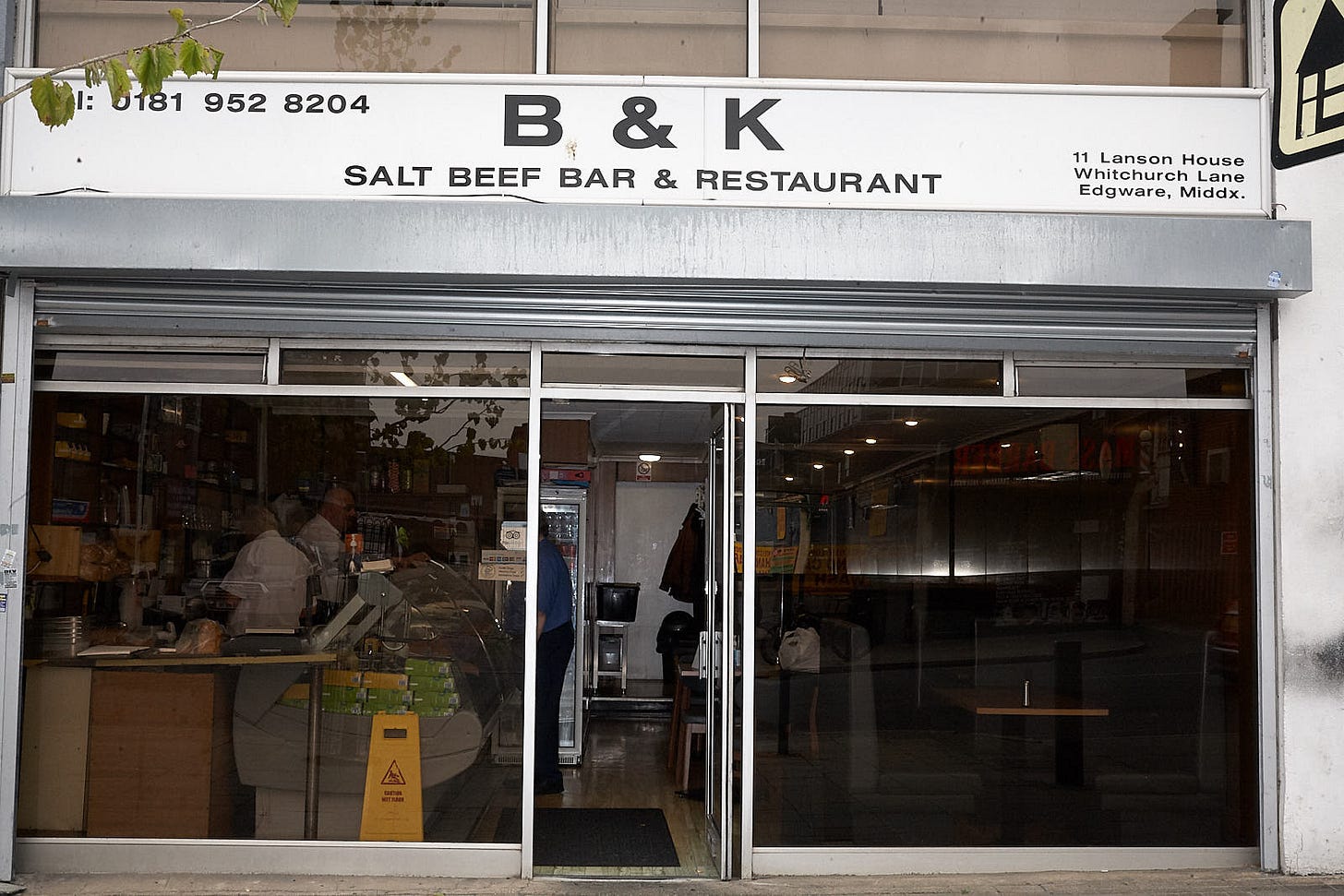
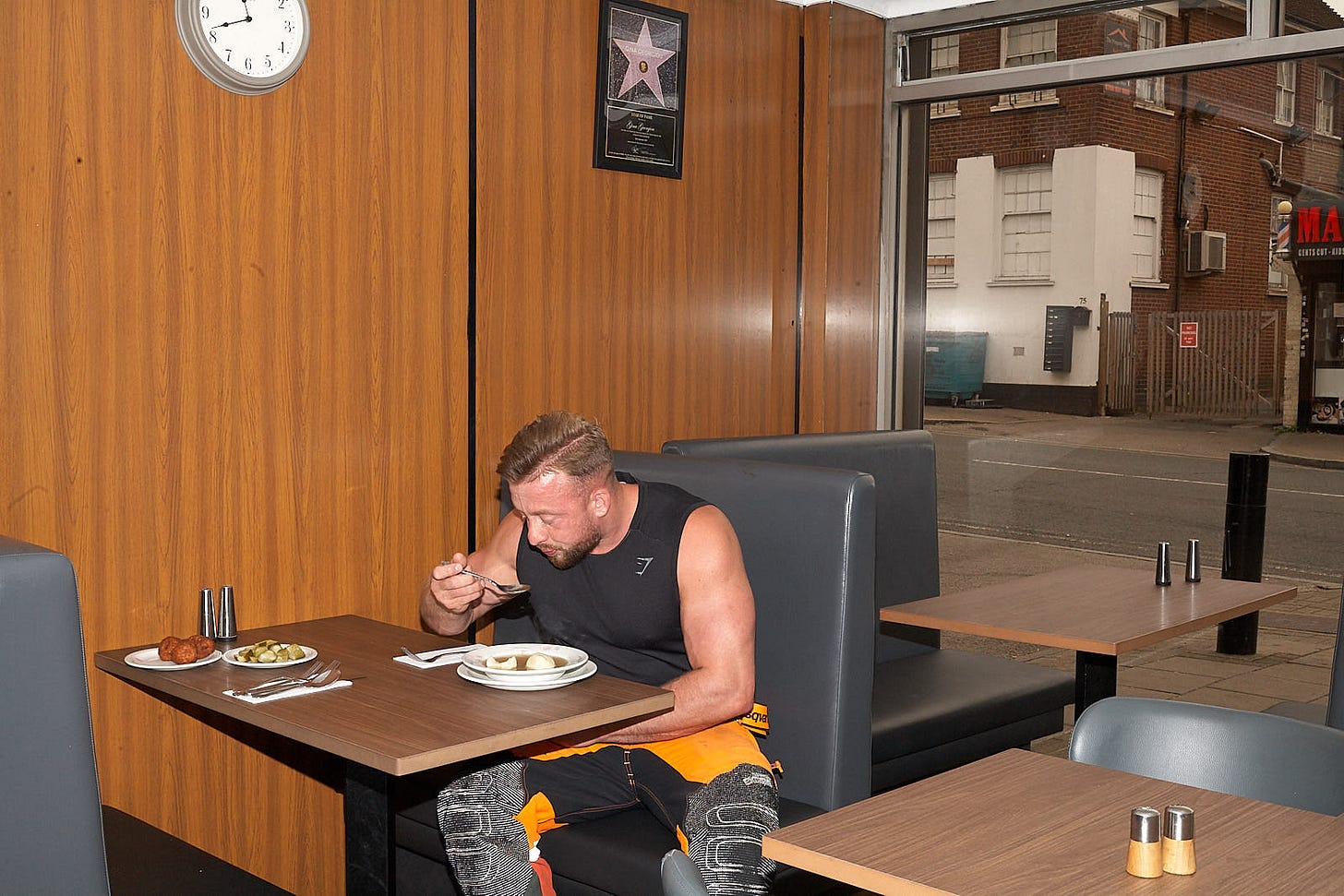
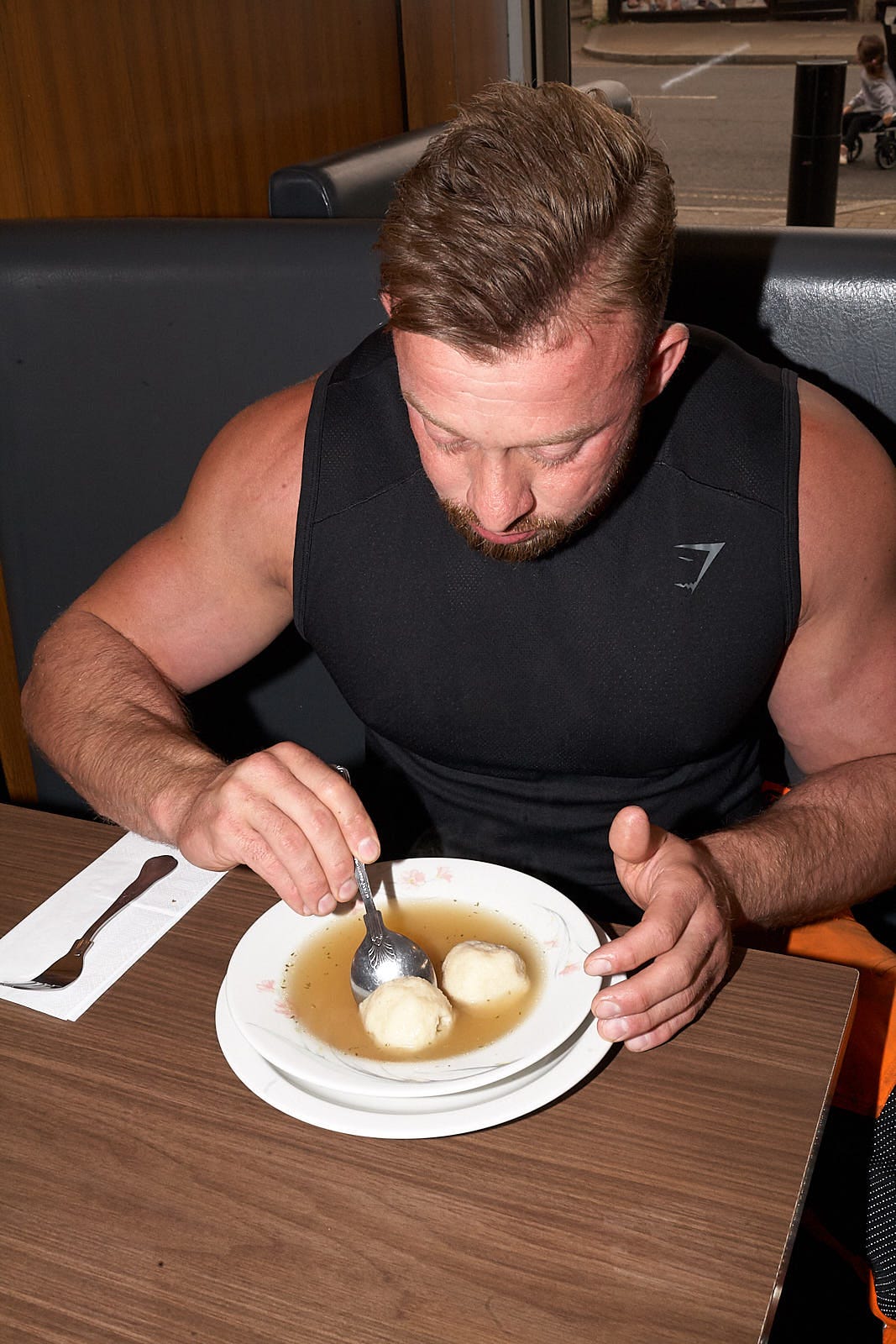
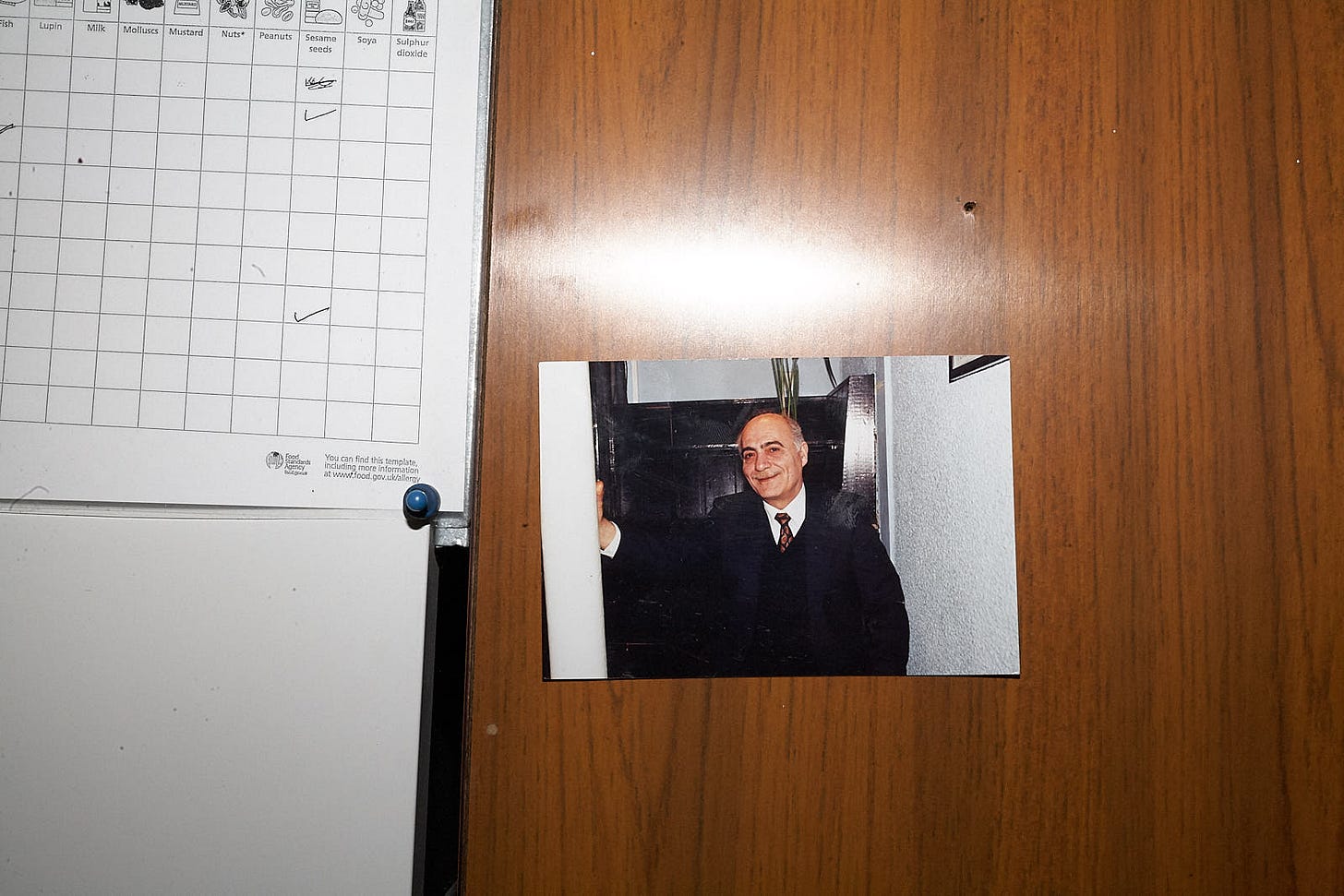
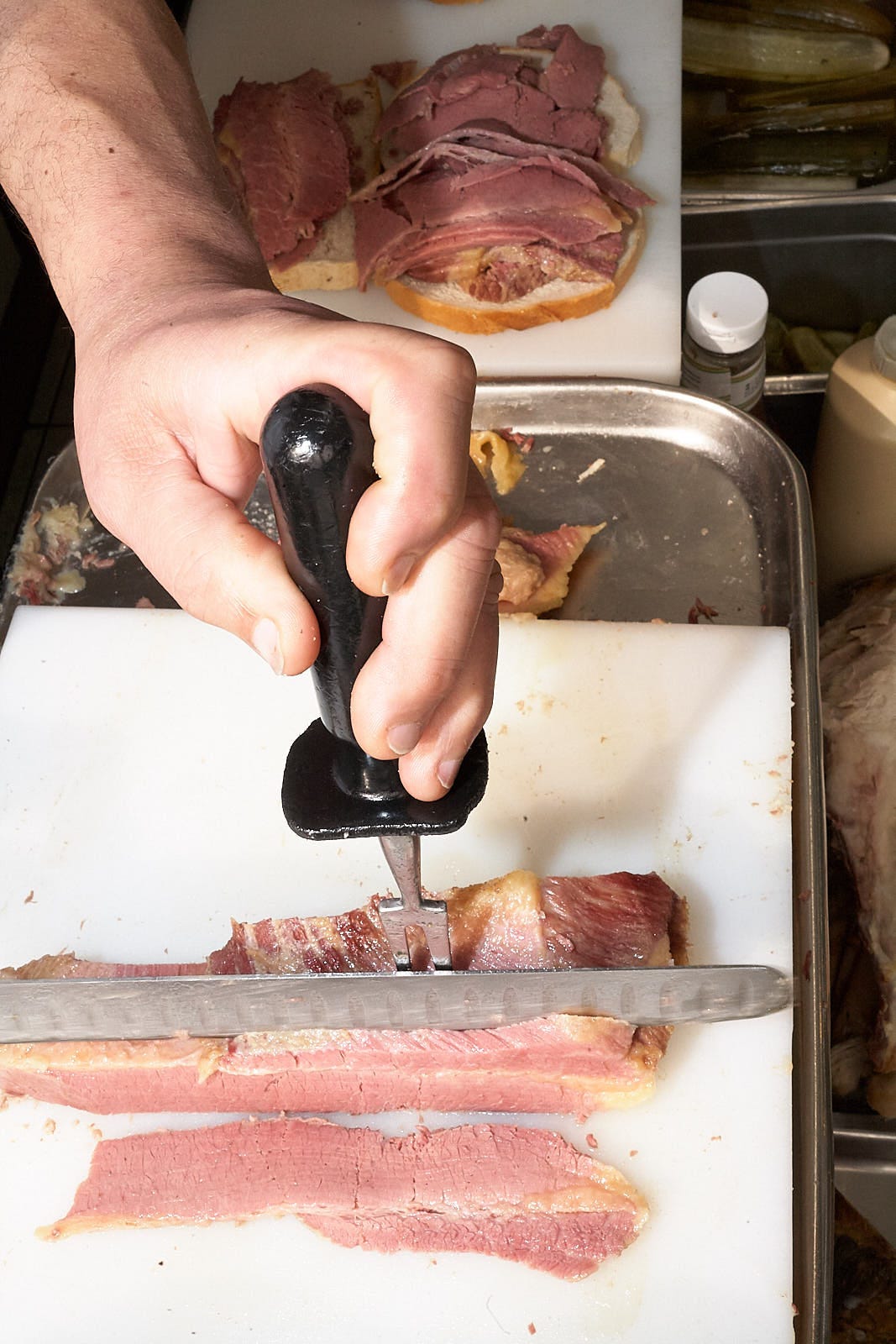
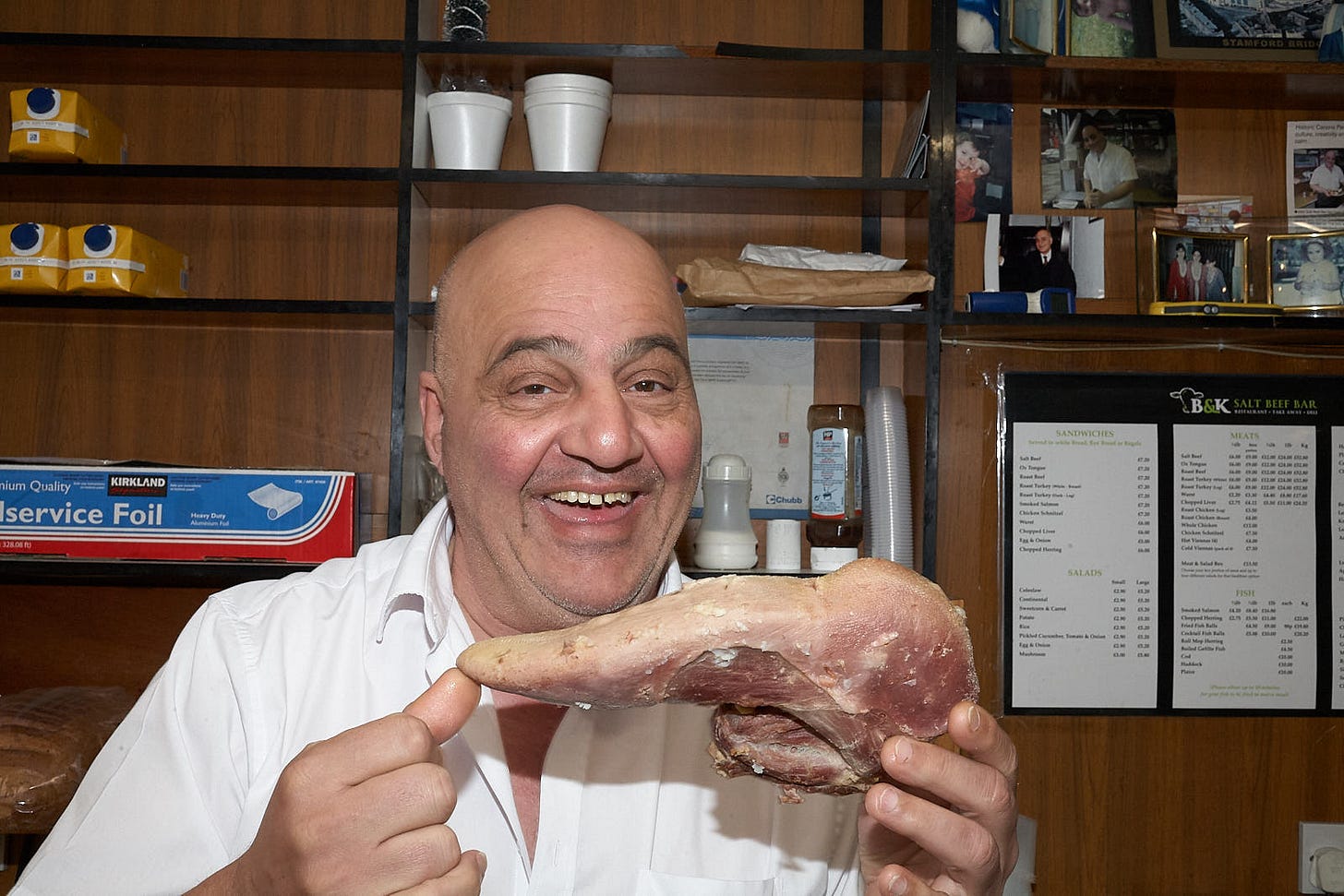
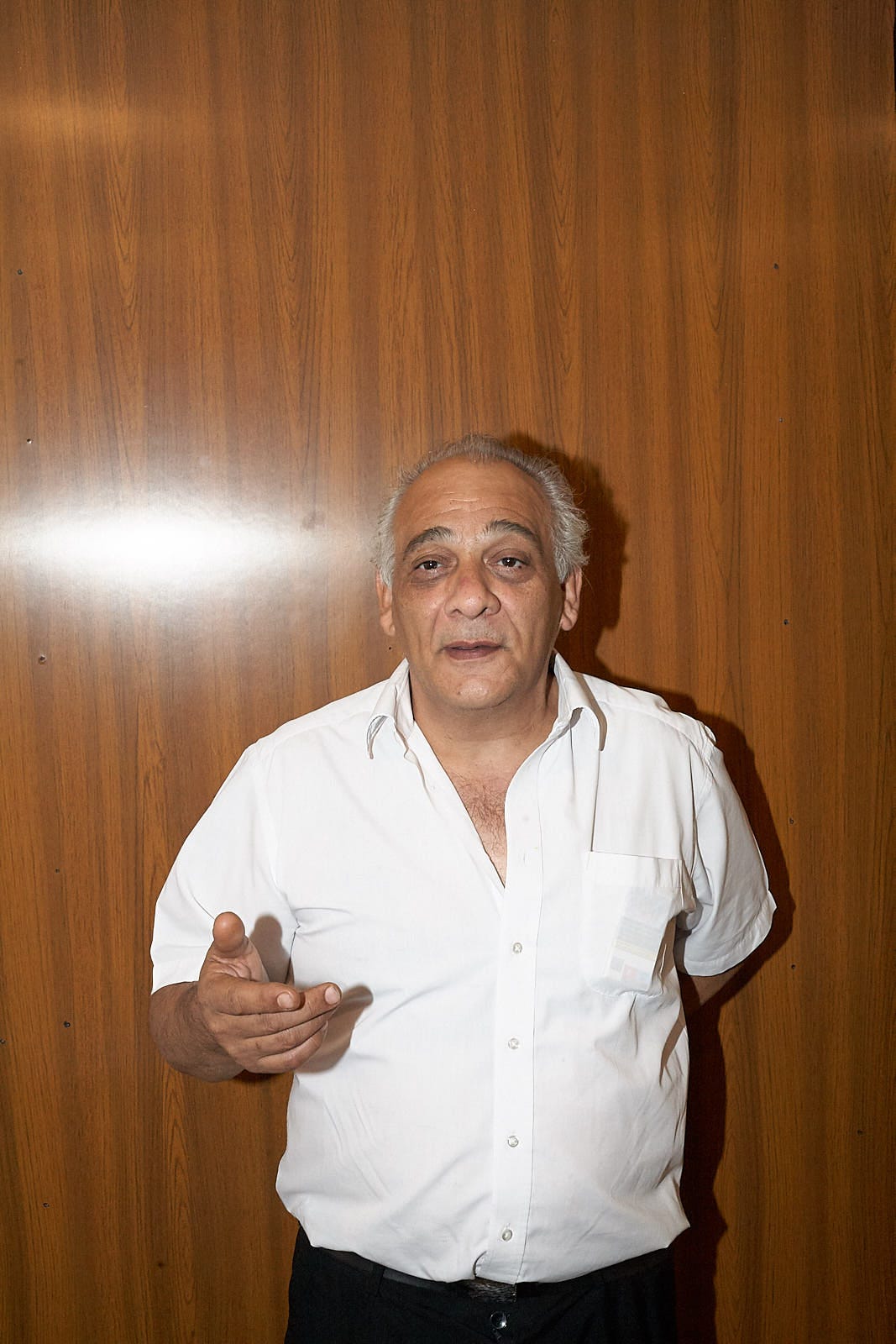
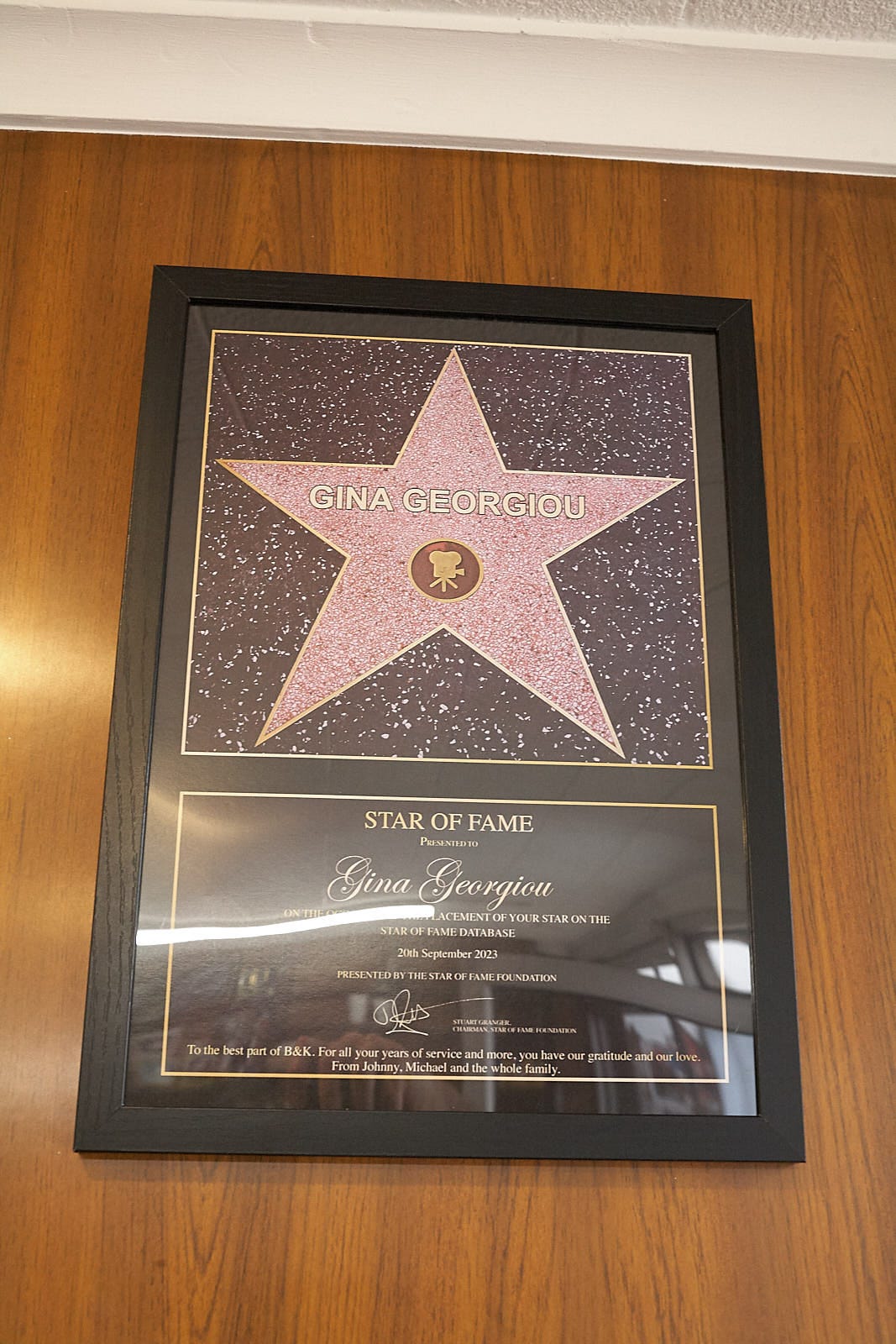
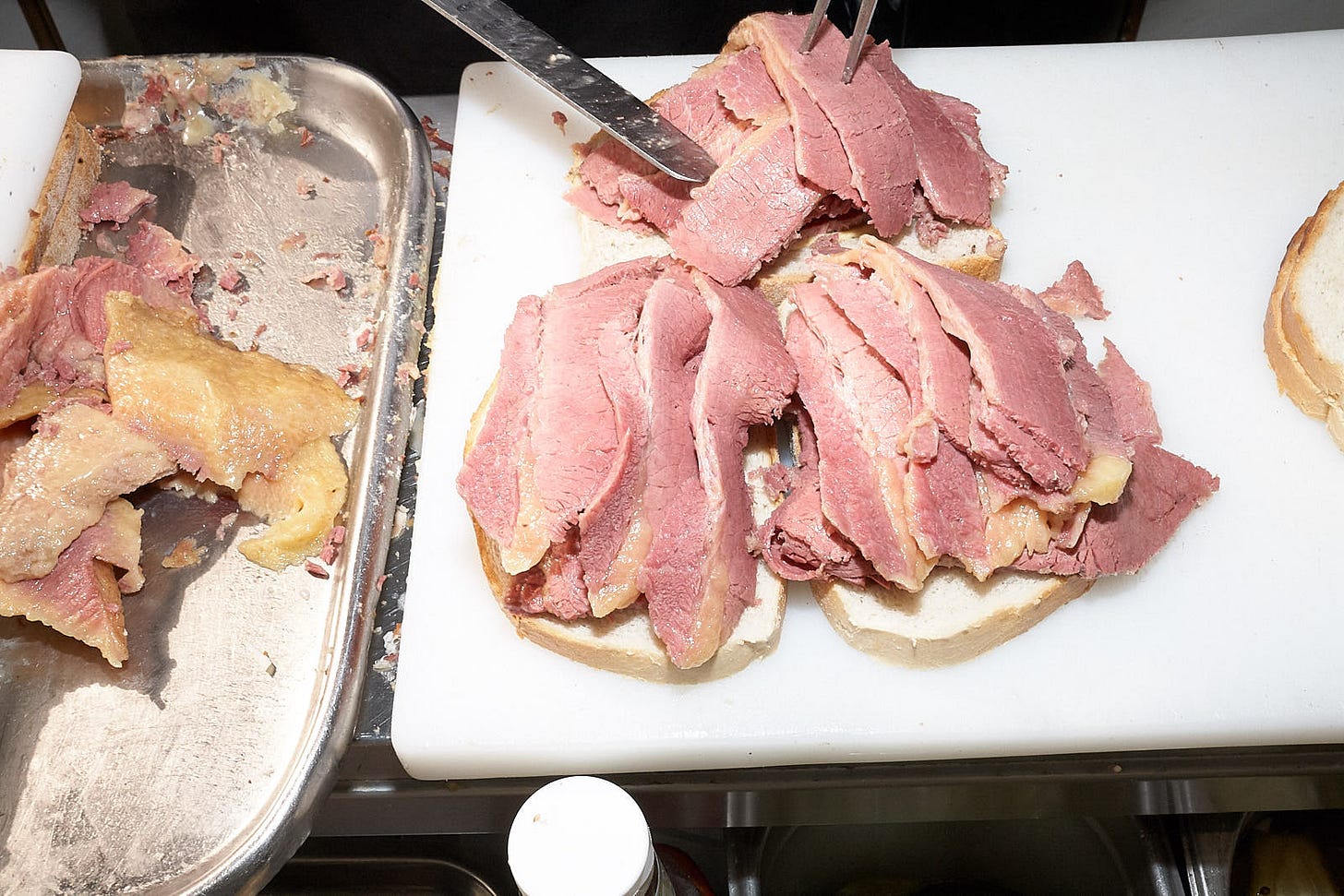
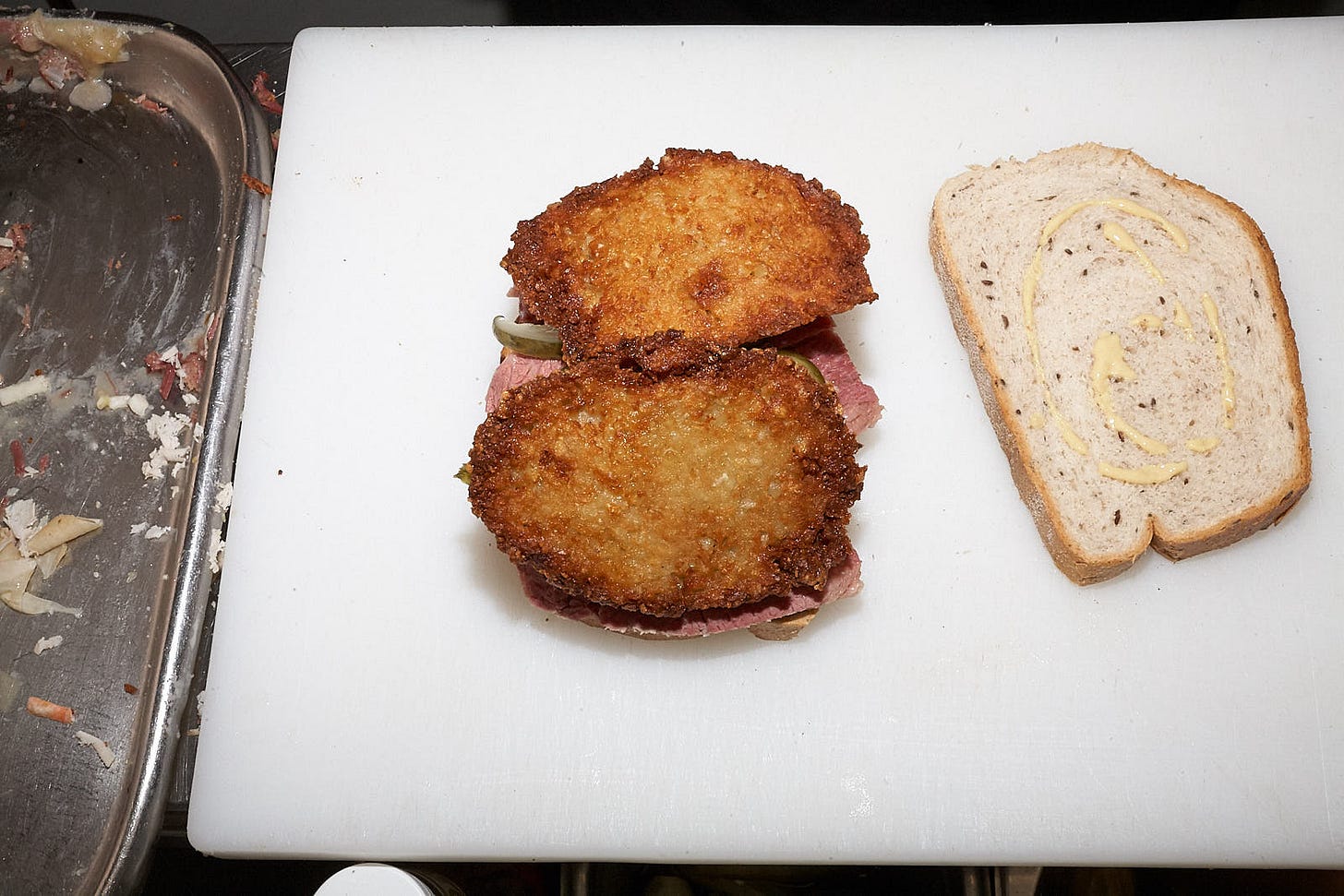
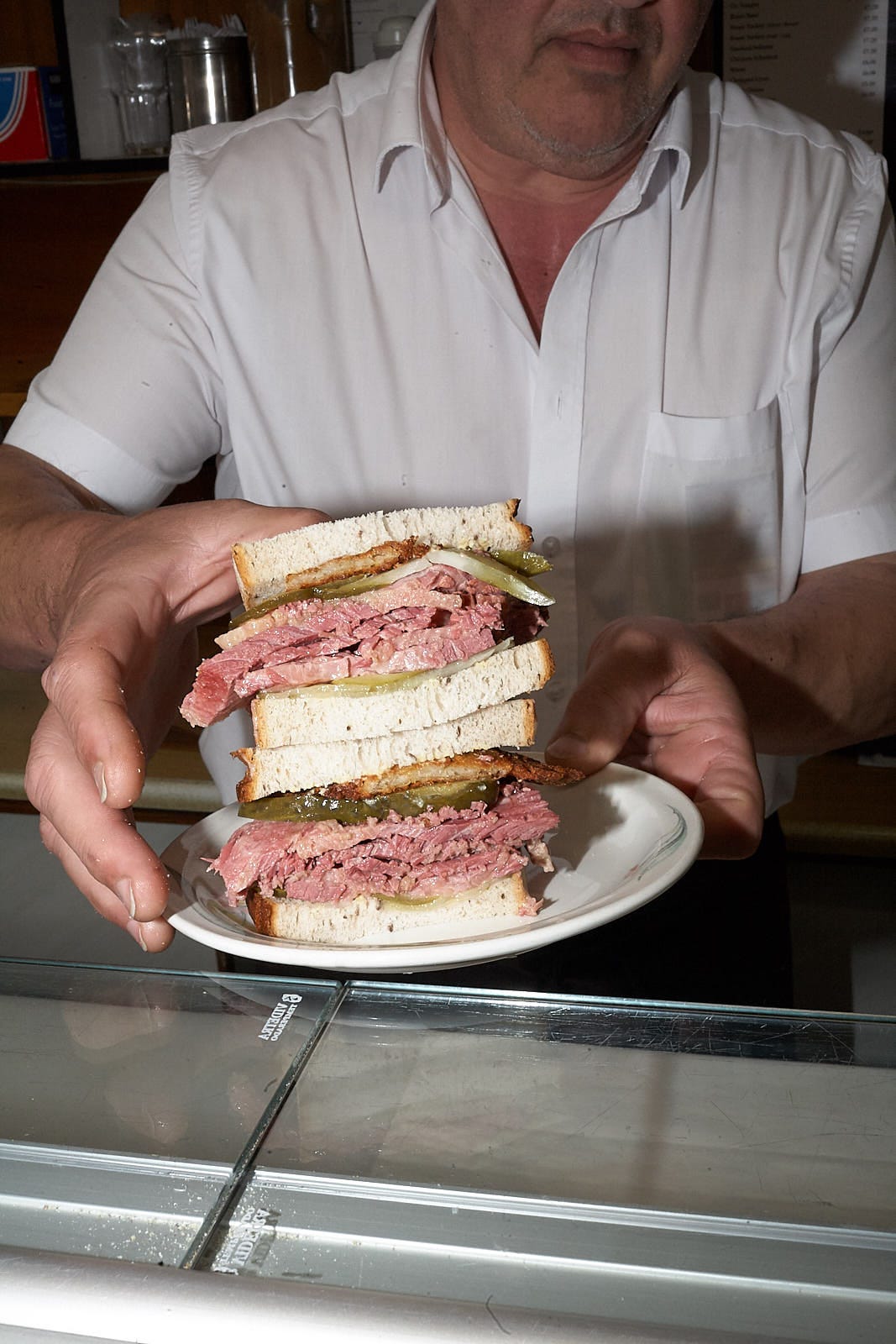
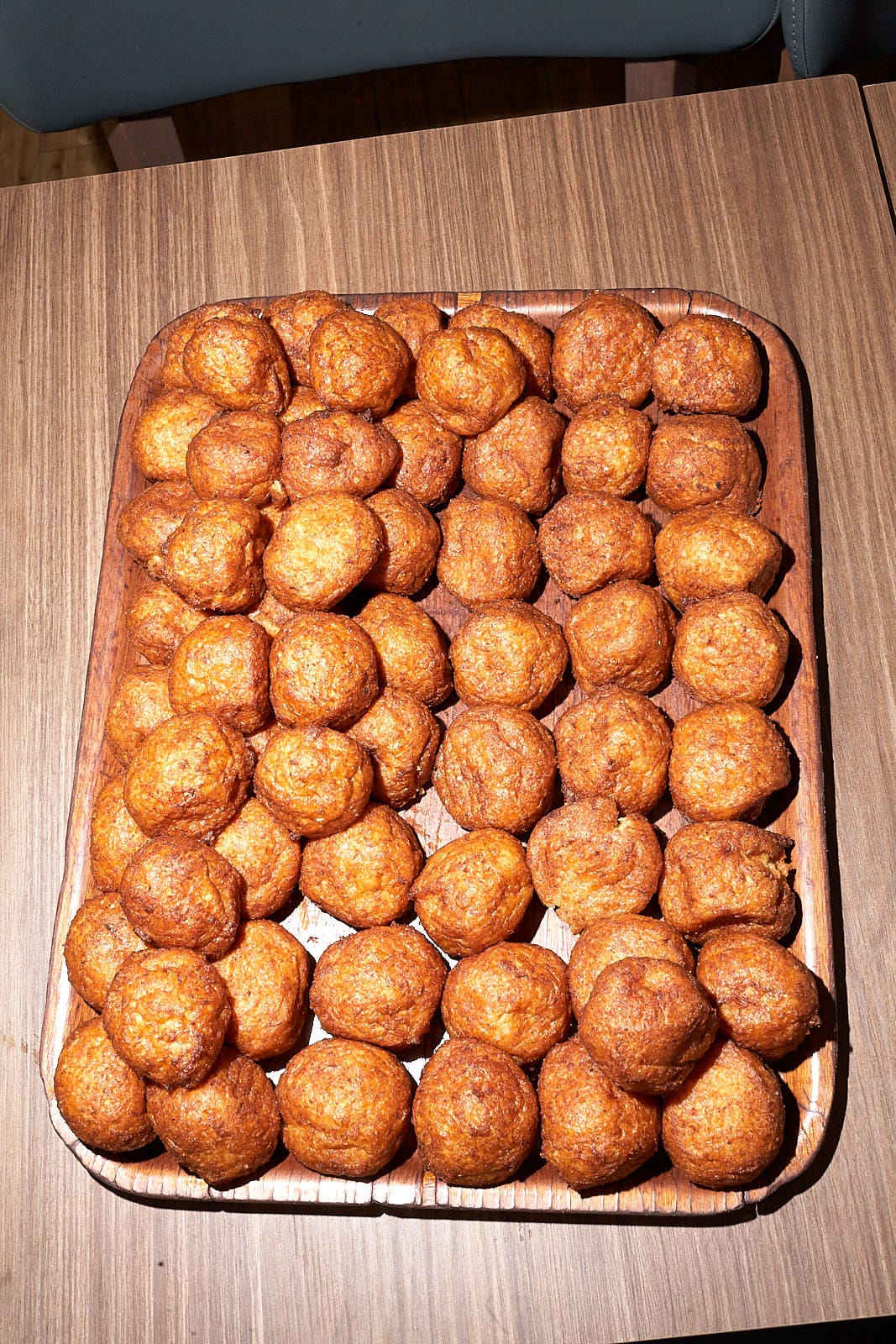
oh my goodness those fish balls appear to have my British Bangladeshi Muslim name all over them!! (I've been on the hunt for decent ones ever since M&S inexplicably stopped selling them). Thank you for another excellent piece, I had no idea about the Selfridges connection.
Thank you, very interesting article. I have been getting salt beef sandwiches, fish balls, salad and chips from the Edgware branch for 42 years. Still come back there with my family who live in South London.